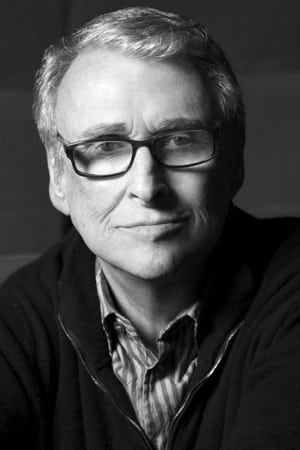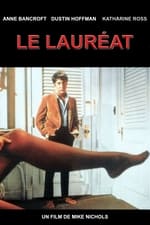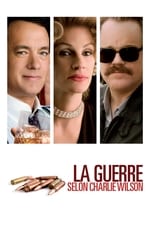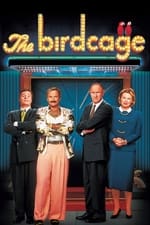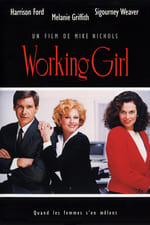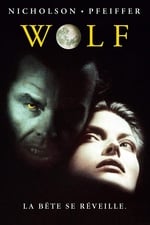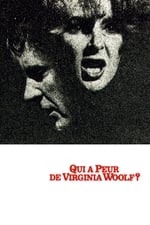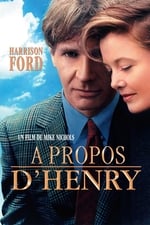Informations personnelles
Célèbre pour Réalisation
Apparitions connues 65
Genre Homme
Date de naissance 6 novembre 1931
Date de décès 19 novembre 2014 (83 ans)
Lieu de naissance Berlin, Germany
Alias
- 마이크 니콜스
- 마이크 니컬스
- 迈克·尼科尔斯
Score de contenu
100
Superbe ! Cette fiche semble complète !
Connectez-vous afin de
signaler un problème.
Biographie
Mike Nichols (born Mikhail Igor Peschkowsky; November 6, 1931 – November 19, 2014) was a German-born American film and theatre director, producer, actor and comedian. He was noted for his ability to work across a range of genres and an aptitude for getting the best out of actors regardless of their acting experience. Nichols began his career in the 1950s with the comedy improvisational troupe, The Compass Players, predecessor of The Second City, in Chicago. He then teamed up with his improv partner, Elaine May, to form the comedy duo Nichols and May. Their live improv acts were a hit on Broadway resulting in three albums, with their debut album winning a Grammy Award.
After Nichols and May disbanded their act in 1961, Nichols began directing plays. He soon earned a reputation as a skilled Broadway director with a flair for creating innovative productions and the ability to elicit polished performances from actors. His debut Broadway play was Neil Simon's Barefoot in the Park in 1963, with Robert Redford and Elizabeth Ashley. He next directed Luv in 1964 and in 1965 directed another Neil Simon play, The Odd Couple. Nichols received a Tony Award for each of those plays. Nearly five decades later, he won his sixth Tony Award as best director with a revival of Death of a Salesman in 2012. During his career, he directed or produced over twenty-five Broadway plays.
In 1966, Warner Brothers invited Nichols to direct his first film, Who's Afraid of Virginia Woolf?, starring Elizabeth Taylor and Richard Burton. The groundbreaking and acclaimed film led critics to declare Nichols the "new Orson Welles". The film garnered 13 Academy Award nominations, winning five. It was also a box office hit and became the number 1 film of 1966. His next film was The Graduate in 1967, starring then unknown actor Dustin Hoffman, alongside Anne Bancroft and Katharine Ross. The film was another critical and financial success, becoming the highest-grossing film of 1967 and receiving seven Academy Award nominations, winning Nichols the Academy Award for Best Directing. Among the other films he directed were Catch-22 (1970), Carnal Knowledge (1971), Silkwood (1983), Working Girl (1988), Wolf (1994), The Birdcage (1996), Closer (2004), and Charlie Wilson's War (2007).
Along with an Academy Award, Nichols won a Grammy Award (the first for a comedian born outside the United States), four Emmy Awards and nine Tony Awards. He was also a three-time BAFTA Award winner. His other honors included the Lincoln Center Gala Tribute in 1999, the National Medal of Arts in 2001, the Kennedy Center Honors in 2003 and the AFI Life Achievement Award in 2010. His films garnered a total of 42 Academy Award nominations and seven wins.
Description above from the Wikipedia article Mike Nichols, licensed under CC-BY-SA, full list of contributors on Wikipedia.
Mike Nichols (born Mikhail Igor Peschkowsky; November 6, 1931 – November 19, 2014) was a German-born American film and theatre director, producer, actor and comedian. He was noted for his ability to work across a range of genres and an aptitude for getting the best out of actors regardless of their acting experience. Nichols began his career in the 1950s with the comedy improvisational troupe, The Compass Players, predecessor of The Second City, in Chicago. He then teamed up with his improv partner, Elaine May, to form the comedy duo Nichols and May. Their live improv acts were a hit on Broadway resulting in three albums, with their debut album winning a Grammy Award.
After Nichols and May disbanded their act in 1961, Nichols began directing plays. He soon earned a reputation as a skilled Broadway director with a flair for creating innovative productions and the ability to elicit polished performances from actors. His debut Broadway play was Neil Simon's Barefoot in the Park in 1963, with Robert Redford and Elizabeth Ashley. He next directed Luv in 1964 and in 1965 directed another Neil Simon play, The Odd Couple. Nichols received a Tony Award for each of those plays. Nearly five decades later, he won his sixth Tony Award as best director with a revival of Death of a Salesman in 2012. During his career, he directed or produced over twenty-five Broadway plays.
In 1966, Warner Brothers invited Nichols to direct his first film, Who's Afraid of Virginia Woolf?, starring Elizabeth Taylor and Richard Burton. The groundbreaking and acclaimed film led critics to declare Nichols the "new Orson Welles". The film garnered 13 Academy Award nominations, winning five. It was also a box office hit and became the number 1 film of 1966. His next film was The Graduate in 1967, starring then unknown actor Dustin Hoffman, alongside Anne Bancroft and Katharine Ross. The film was another critical and financial success, becoming the highest-grossing film of 1967 and receiving seven Academy Award nominations, winning Nichols the Academy Award for Best Directing. Among the other films he directed were Catch-22 (1970), Carnal Knowledge (1971), Silkwood (1983), Working Girl (1988), Wolf (1994), The Birdcage (1996), Closer (2004), and Charlie Wilson's War (2007).
Along with an Academy Award, Nichols won a Grammy Award (the first for a comedian born outside the United States), four Emmy Awards and nine Tony Awards. He was also a three-time BAFTA Award winner. His other honors included the Lincoln Center Gala Tribute in 1999, the National Medal of Arts in 2001, the Kennedy Center Honors in 2003 and the AFI Life Achievement Award in 2010. His films garnered a total of 42 Academy Award nominations and seven wins.
Description above from the Wikipedia article Mike Nichols, licensed under CC-BY-SA, full list of contributors on Wikipedia.
Réalisation
|
||||||
|
||||||
|
||||||
|
||||||
|
||||||
|
||||||
|
||||||
|
||||||
|
||||||
|
||||||
|
||||||
|
||||||
|
||||||
|
||||||
|
||||||
|
||||||
|
||||||
|
||||||
|
||||||
|
||||||
|
||||||
|
Interprétation
Production
|
||||||
|
||||||
|
||||||
|
||||||
|
||||||
|
||||||
|
||||||
|
||||||
|
||||||
|
||||||
|
||||||
|
||||||
|
||||||
|
||||||
|
||||||
|
||||||
|
||||||
|
||||||
|
||||||
|
||||||
|
Écriture
|
|||
|
|||
|
Création
|
|||
|
Équipe technique
|
